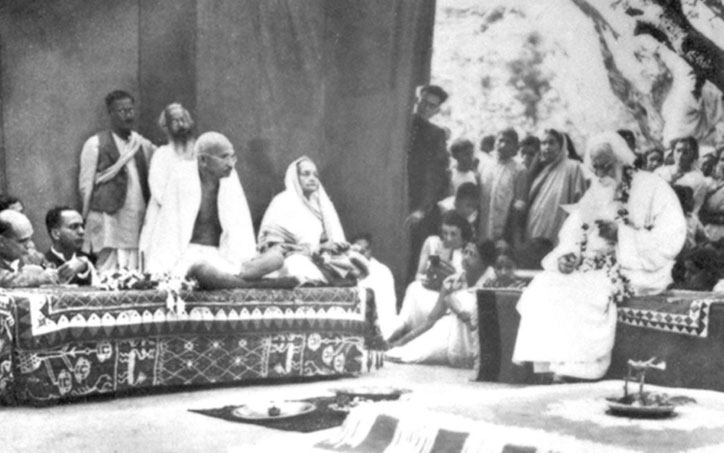 New Delhi:
New Delhi: Rajmohan Gandhi, noted public intellectual and Mahatma Gandhi's grandson, says the "all-demanding and remarkably effective effort" of the Father of the Nation to realise his goal came at a price and he should have devoted more time and attention to his wife and sons.
"He should have given more time and attention to his wife and sons, and listened more to them. A flawless Gandhi would have been a superb husband and a superb father, in addition to being the astonishing friend and inspirer he was to Indians of every kind," Rajmohan Gandhi told IANS in an interview ahead of the release of his new book, "Why Gandhi Still Matters".
"But he was human. He could not resist an all-consuming passion to liberate an enslaved India, and to make all Indians friendly and if possible forgiving to one another," he added.
Thus, on the flip side, members of Gandhi's family were often hurt, and that realisation was a wound in his heart too, the author said.
The new book appraises Gandhi and his legacy by examining some of his most famous and often most controversial ideas, beliefs, actions, successes and failures.
The author analyses Gandhi's commitment to democracy, secularism, pluralism, equality and non-violence, his gift to the world of satyagraha -- the key strategies in his fight for India's freedom -- his opposition to caste discrimination and his equations with Winston Churchill, Mohammad Ali Jinnah and B.R. Ambedkar, as also his failings as a human being and family man.
But what are his views on the relevance of Mahatma Gandhi in contemporary times?
"If in our polarised land, a heart free of enmity -- a heart that embraces all Indians -- is irrelevant, then Gandhi is of no value to us. If a pro-poor commitment by the elite is irrelevant, then we can cheerfully ignore him. If a relentless pursuit of self-interest will make India happy, then we need not recall Gandhi."
"We can also ask ourselves, why does the world remember Gandhi as it does not remember any of his contemporaries from any part of the world? Why is Gandhi quoted far oftener than Churchill or (Franklin) Roosevelt or any other figure from his time," the author asked.
He said that two wonderful Indian-Americans, Dr Akshay Shah of New Jersey and Dr Barindra Desai of Pennsylvania, wanted him to recall some central aspects of Gandhi's life and thought for a multiracial and multinational audience, which ultimately led to this book.
The central message of Gandhi's life, for the author, is to be true to one's conscience.
"That to me is his life's central message. And since I want to be faithful to my mind and my conscience, I do not feel pressure in being his grandson. I do not ask myself whether I am living up to his expectations or to what others may expect from a grandson of his," he added.
Asked to share his views on Gandhi's perspectives on secularism and democracy and how his lessons can help foster brotherhood in these increasingly divisive times, the author pointed out that in 1909 -- 108 years go -- he said categorically in "Hind Swaraj" that "religion and nationality are two distinct things", and that "no successful or modern nation can afford to mingle with the two".
"It was a stand from which he never wavered. By the time he was killed in 1948, he had ensured -- with the wholehearted cooperation of leaders like (Jawaharlal) Nehru, (Sardar) Patel and Ambedkar, and the bulk of the Indian people -- that at least in its statute our republic would be secular and impartial," the author noted.
When asked whether, in his own words, "power-hungry politicians" have let Bapu down, he responded: "We need not ask whether power-hungry politicians or any others have let Bapu down. We should all ask ourselves whether we have been loyal to our own principles. Our politicians should, of course, ask themselves whether they have put themselves or the country first."
 New Delhi: Rajmohan Gandhi, noted public intellectual and Mahatma Gandhi's grandson, says the "all-demanding and remarkably effective effort" of the Father of the Nation to realise his goal came at a price and he should have devoted more time and attention to his wife and sons.
New Delhi: Rajmohan Gandhi, noted public intellectual and Mahatma Gandhi's grandson, says the "all-demanding and remarkably effective effort" of the Father of the Nation to realise his goal came at a price and he should have devoted more time and attention to his wife and sons.